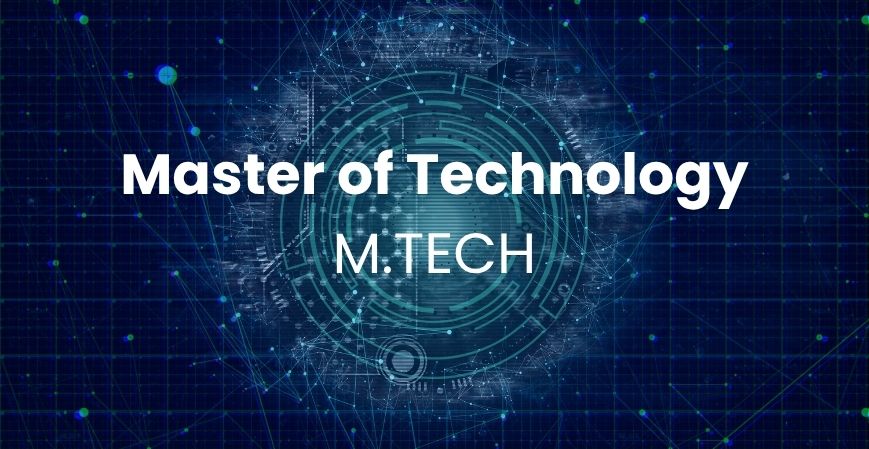With the increasing demand for skilled professionals in the technology and engineering sectors, a Master of Technology (M.Tech) degree has become a powerful stepping stone toward specialized expertise and high-level careers. Whether you’re looking to dive deeper into your engineering domain, shift into research and development, or pursue an academic career, M.Tech can be the key.
This article explains everything you need to know about M.Tech—from eligibility and admission process to specialization options, career scope, and future trends.
What is M.Tech?
M.Tech (Master of Technology) is a postgraduate professional degree awarded after completion of 2 years of advanced study in various engineering and technology disciplines. The program is designed to provide a blend of theoretical knowledge, practical application, and research opportunities, allowing engineers to specialize in a specific area.
M.Tech is equivalent to ME (Master of Engineering) in many countries, and in India, both degrees are recognized by the AICTE and UGC.
Duration of M.Tech
- 2 Years (Full-Time)
- Typically divided into 4 semesters, including coursework, lab work, mini-projects, and a major dissertation/thesis in the final semester.
Modes of Study
- Full-Time M.Tech – Regular on-campus programs with classes, labs, and internships.
- Part-Time M.Tech – Designed for working professionals; classes are held on weekends/evenings.
- Sponsored M.Tech – For employees sponsored by their employer; no GATE required.
- Distance/Online M.Tech – Not recognized for all branches or by AICTE for technical roles, but available for academic interest.
- Integrated M.Tech – 5-year program after 12th (e.g., B.Tech + M.Tech combined).
Eligibility Criteria
To apply for an M.Tech program in India, you typically need:
- Bachelor’s Degree: B.E./B.Tech in a relevant discipline from a recognized university.
- Minimum Marks: 50-60% aggregate (varies by institution).
- Entrance Exams:
- GATE (Graduate Aptitude Test in Engineering) – Most common for admissions to IITs, NITs, and state universities.
- Other Exams: TANCET, AP PGECET, BITS HD, VITMEE, etc.
- Sponsored Seats: For professionals working in R&D or PSUs, with employer sponsorship.
Admission Process
- Qualify Entrance Exam (mostly GATE)
- Apply to Institutions via:
- CCMT (Centralized Counseling for M.Tech at NITs)
- COAP (Common Offer Acceptance Portal for IITs)
- Direct university applications (private/state universities)
- Counseling and seat allotment
- Admission Confirmation and payment of fees
Popular M.Tech Specializations
M.Tech offers diverse specializations tailored to different industry sectors:
Core Engineering Specializations
- Mechanical Engineering
- Electrical Engineering
- Civil Engineering
- Electronics and Communication Engineering
- Chemical Engineering
Computer and IT Specializations
- Computer Science Engineering
- Information Technology
- Artificial Intelligence & Machine Learning
- Data Science
- Cybersecurity
- Cloud Computing
Emerging Technologies
- Robotics
- Renewable Energy
- IoT (Internet of Things)
- Nanotechnology
- Bioinformatics
Interdisciplinary Options
- Engineering Design
- Environmental Engineering
- Industrial Engineering
- Mechatronics
Top Institutes for M.Tech in India
IITs (Indian Institutes of Technology)
- IIT Bombay
- IIT Delhi
- IIT Madras
- IIT Kanpur
- IIT Kharagpur
NITs (National Institutes of Technology)
- NIT Trichy
- NIT Surathkal
- NIT Warangal
- NIT Rourkela
Other Premier Institutions
- BITS Pilani
- IIIT Hyderabad
- Jadavpur University
- VIT Vellore
- Delhi Technological University (DTU)
M.Tech Course Structure
Semester-Wise Breakdown
- Sem 1 & 2: Core subjects + electives + lab work
- Sem 3: Project work + research methodology
- Sem 4: Thesis submission + viva
Components
- Lectures
- Practical Labs
- Industrial Training
- Seminars/Presentations
- Dissertation/Research Project
Career Opportunities After M.Tech
1. Academic and Research Careers
- Lecturer/Professor in engineering colleges
- Research Scientist
- Ph.D. for further academic pursuit
2. Corporate Sector
- Design Engineer
- Software Developer (for CS/IT)
- Network Engineer, Data Analyst
- AI/ML Engineer, Embedded Systems Engineer
3. Government Sector
- Opportunities through exams like:
- UPSC ESE
- ISRO, DRDO, BARC
- Public Sector Undertakings (PSUs)
4. Entrepreneurship & Startups
- Launching tech ventures in AI, IoT, clean energy, etc.
M.Tech vs MBA: Which is Better?
| Factor | M.Tech | MBA |
|---|---|---|
| Focus | Technical & Engineering Expertise | Management & Leadership |
| Entrance Exam | GATE | CAT, XAT, GMAT |
| Ideal for | Engineers interested in R&D | Engineers/business grads seeking leadership roles |
| Career Path | Technical, Academic | Managerial, Entrepreneurial |
| Common Fields | IT, Core Engineering | Marketing, Finance, HR, Operations |
Tip: Choose based on your career goals—if you enjoy problem-solving, innovation, and technical depth, M.Tech is a better fit.
Pros and Cons of M.Tech
✅ Pros
- Specialized knowledge
- Better technical job prospects
- Entry into R&D and academia
- Higher salary potential (especially in niche areas)
❌ Cons
- Requires 2 years commitment
- Less useful if planning to switch careers (e.g., to business)
- Fewer generalist roles
Trends in M.Tech Education (2025 and Beyond)
- AI & Data-Driven Specializations are gaining more traction.
- Industry-Academia collaboration is improving, especially in tech hubs like Bengaluru, Pune, and Hyderabad.
- Online M.Tech programs from IITs and IIITs (like through NPTEL, SWAYAM) are increasing in popularity.
- Interdisciplinary research is becoming the norm, e.g., combining AI with biotech or mechanical with robotics.
Conclusion
An M.Tech degree is more than just an academic milestone—it’s a gateway to advanced technical careers, research roles, and innovation opportunities. With the right specialization and institution, it can significantly boost your professional journey, especially in a tech-driven world.
Whether you’re planning to become a software architect, design engineer, AI researcher, or academician, M.Tech offers the structure, knowledge, and depth needed to reach your goals.


